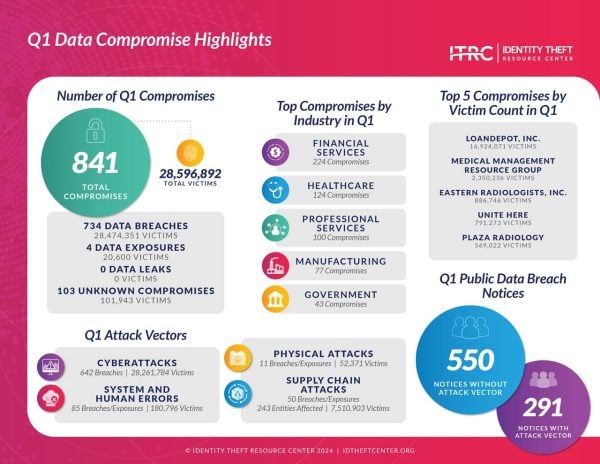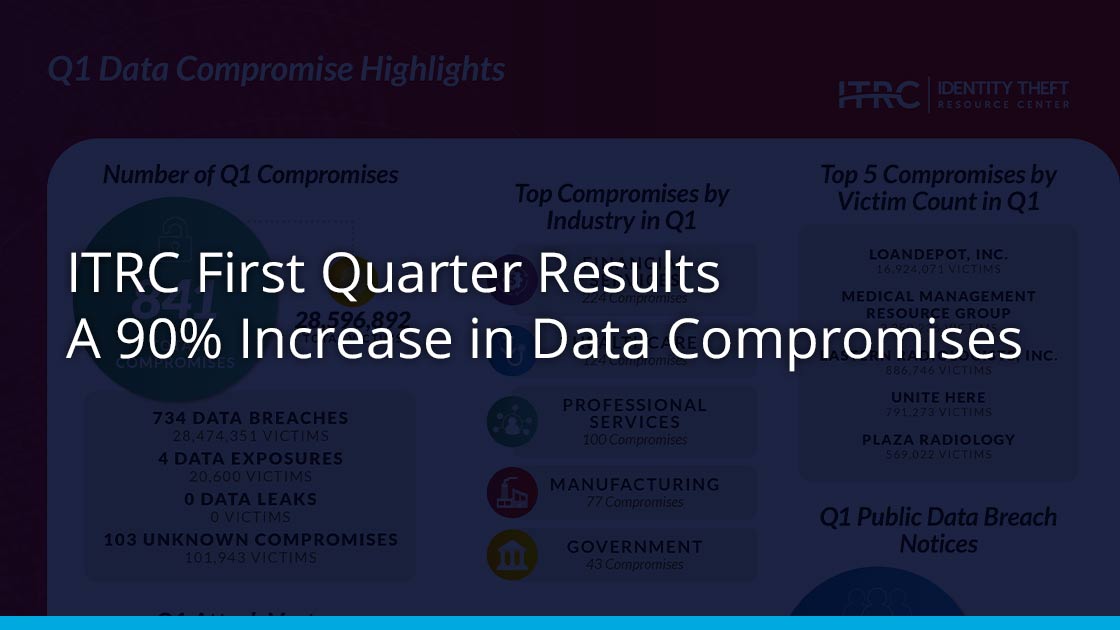The new ITRC Q1 2024 report reveals a significant surge in publicly reported data compromises. The first three months of 2024 saw a reported 841 data compromises, a 90% increase over the same quarter in 2023 and a 108% increase over Q1 in 2022.
 Cyberattacks accounted for most of the compromises, with 642 attacks, while 85 compromises were caused by system or human errors, and 11 were physical attacks.
Cyberattacks accounted for most of the compromises, with 642 attacks, while 85 compromises were caused by system or human errors, and 11 were physical attacks.
This rise is particularly significant given that Q1 typically sees the lowest number of reported breaches. What’s even more alarming is that over two-thirds of cyberattack-related breach notices lacked information about the root cause, a sharp increase from the previous year.
Despite this increase in breaches, the number of victims reported by compromised organizations saw a significant decline of 72% compared to Q1 2023 and an 81% decrease from the previous quarter. This represents the fewest number of people impacted by data compromises since Q1 2022.
The Identity Theft Resource Center (ITRC) tracked attacks across 15 of 17 industries, with Financial Services taking the lead with 224 notices, displacing Healthcare, which recorded 124 notices. However, healthcare still maintains its position as the most attacked industry among the top ten compromises.
Eva Velasquez, president and CEO of the ITRC, weighed in on the report’s findings.
“The decrease in victims impacted is a bit of good news, though still too high. We believe it is due to identity criminals launching more targeted attacks, which differ from tactics used five to 10 years ago. With that said, it is critical that businesses and consumers continue to practice good password hygiene and transition to Passkeys when possible.”
The report’s statistics highlight the pervasive nature of cyber threats across various sectors and the urgent need for enhanced cybersecurity measures to secure sensitive data and mitigate risks effectively.
Bluefin can help your organization safeguard sensitive data from attacks every time your business gets paid. Contact us to learn more.
Read ITRC’s full report here.








